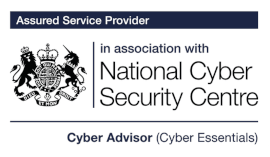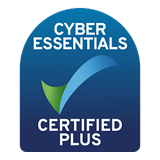SMEs are investing in cyber security and the cloud

The last few years have seen a significant increase in the cyber security challenges threatening businesses of all sizes. There are many examples of the rising level of cyber crime impacting organisations.
However, while large businesses have the budget to invest in strong security measures against cyber-attacks, smaller companies often lack the capacity and financial capabilities to do this.
SMEs should take action
Many owners of start-ups and SMEs think that cyber crime is mostly aimed at big companies. In fact, it’s more likely that smaller businesses will be targeted, as they are likely to invest less in cyber security. If you think how much your business relies on the Internet to function, you can see what potential issues cyber crime can cause, including loss in productivity and damage to your reputation. Issues such as these can have a serious adverse effect on the profits of your business.
In many instances businesses appoint Chief Information Security Officers (CISO), who have responsibility for leading efforts to enhance data security. This is something of a challenge for smaller businesses who often do not have the resources to fund a position that is entirely focused on IT security.
Computer Geeks IT Services found that attacks on SMEs are increasing dramatically; small businesses should actively look at cost-effective ways to increase their data security. As such, there’s a good chance that we’ll see these security concerns driving smaller and medium sized organisations investing in cyber security measures and towards cloud solutions like Office 365.
Why look to the cloud?
Rather than worrying about safeguarding multiple systems within their own environment, it’s far easier for a small IT team to offload that burden to a cloud service provider. While services like Office 365 can never be 100 per cent secure, what they can do is provide the peace of mind needed that a team of skilled security specialists are working to eliminate threats. You’re not simply pushing all responsibility to the service provider, however. You are ultimately still responsible for the data and its security – but as an SME, by working with an expert you’ll have much greater security processes in place than you could achieve in-house.
While the benefits of having access to this expertise are obvious, concerns will always exist for those organisations taking their first steps into cloud services. Even if we look at established public cloud platforms like Microsoft Azure, Amazon Web Services (AWS) or Google’s Cloud Platform, there is still work to be done in making these cloud services more accessible and more intuitive for first time users.
While many users have experience with Office 365’s interface, which is incredibly simple to use, it takes time to become familiar with more complex platforms such as Azure or AWS. They still require a “hand-holding” approach to set up which needs to be simplified in order to facilitate more widespread adoption. The other good option is to use a service provider that can manage that process for you.
With more businesses wising up to the vulnerability of their IT systems, it seems likely that many will turn towards cloud providers for cost-effective security measures. Services like Office 365 are invaluable for SMEs looking to secure their information without heavily investing in dedicated security infrastructures.
What else can SME’s do to combat cyber-attack risks?
Any small or medium business cannot afford not to take action to address cyber security risks. You need to review what IT systems your business relies on to function and evaluate how much downtime would result from the loss of these systems. From here you can ascertain where to place emphasis with your cyber security measures.
An example of this is that if you run a small office where computers are used simply for completing tasks in the day to day running of the business, you simply need to ensure those computers are protected against malware and that your email systems are secure. On the other hand, if you run an e-commerce business, you need to think about protection such as encryption.
Digital start-ups that want to gain a good reputation for their product need to think about investing in improved safeguards such as cloud-based web application firewalls.
Education is another imported feature in protecting your business against cyber attacks. Your employees need to know the dangers of clicking on links that are not secure or using software that has not been authenticated.
The sooner you start the better
Many businesses that fall victim of cyber attacks do so because they only consider the risks once the worst has happened. The truth is that it’s never to soon to protect your business and there are solutions aimed at small businesses, including cloud based solutions, which make this simple for you to do. Remember that there is a real risk your business could suffer a cyber attack. It’s much better to invest in security than have to deal with the financial implications that an attack can bring.





